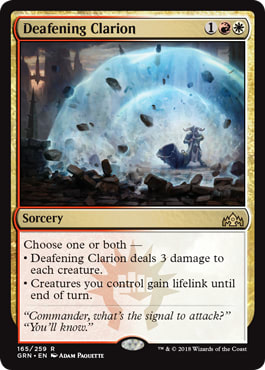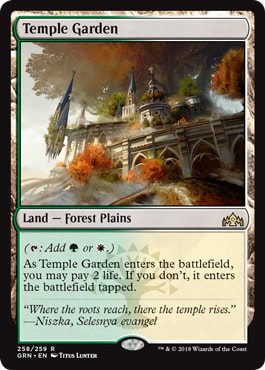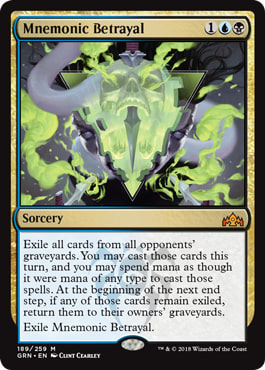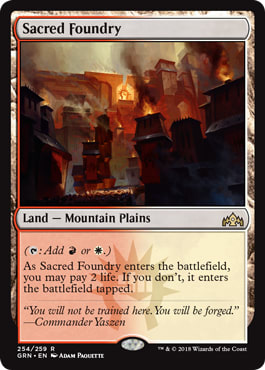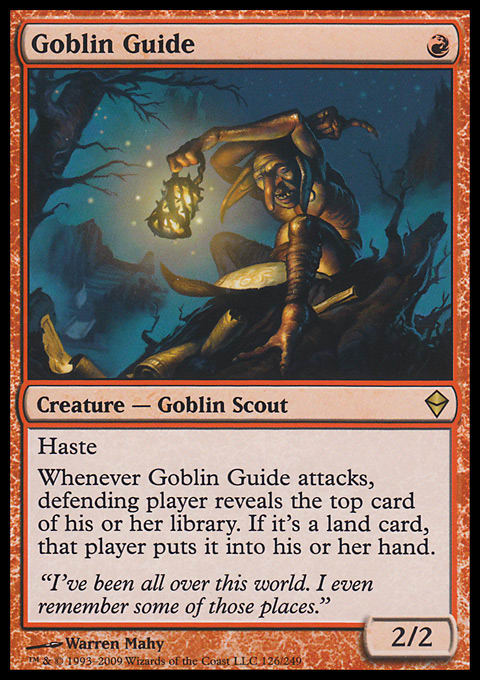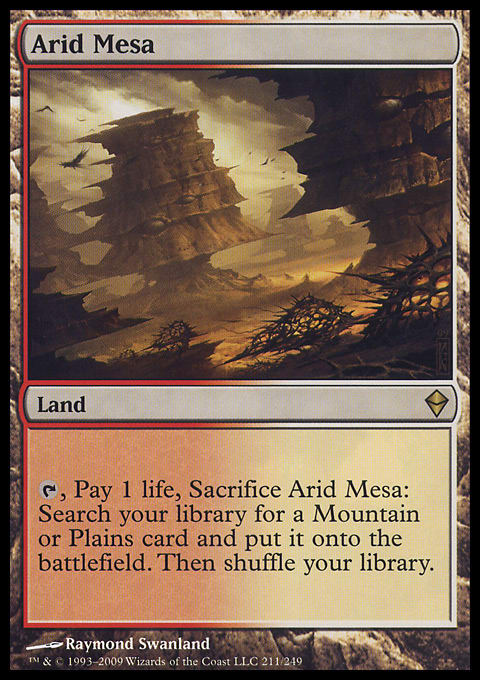Pauper is an amazing format. Where many see the commons-only limitation and think the format is underpowered, others see the potential for innovation. There are many ways to play it and new angles of attack are constantly being uncovered . For a large number of players this is a major draw. For others, the allure of Pauper is something far more tangible: it's affordable.
Many would love to dive headfirst into formats like Standard, Modern, or even the likes of Legacy but find themselves unable to play due to the cost. Standard, a format with a small card pool and relatively lower card prices, can feel daunting enough with decks usually costing anywhere from roughly $150-500. They can sometimes cost more, like during Khans of Tarkir Standard when some decks hit $1000 values; but, they can also cost less! The affordable Mono-Blue Tempo list making waves in the current metagame is a good example of a cheaper alternative. No matter the cost, having your Standard cards rotate and become devalued is a real feel-bad moment, and those numbers are also nowhere the realm of Modern, let alone Legacy where a single playable card can cost more than multiple Standard lists.
Looking at those numbers can be disheartening when your goal is to play professional Magic. You could dream of making it to the Pro Tour one day or hit the SCG Open Series and take your game to a whole new level. Unfortunately, it's often out of reach due to the overwhelming cost of keeping up with the game. This is where Pauper enters the picture.
Over these next few weeks, I'm going to give you some insight into how you can achieve your dream of making it big in competitive Magic using the game's best budget format as a launch pad for your competitive career. This week, I'm going to focus more on paper events and how to establish a collection. Next week I'll be doing the same for Magic Online before finally going over how you can take your decks, skills, and play styles and adapt them to other formats.
Becoming Competitive
You may yourself asking: how can Pauper get me to the Pro Tour? Since The Professor brought up the possibility of higher tournament grade play for Pauper, many TOs (tournament organizers) started offering more competitive Pauper events than ever before. ChannelFireball now hosts Pauper side events every day at Grand Prixs and StarCityGames does the same during their Open Series events. Both have held larger events in the form of Championships and Classics respectively; full swiss events with cut to Top 8 finishes. Local stores have begun hosting Pauper tournaments that might not have done so in the past. Even more options are at your fingertips when you get into the world of Magic Online where Constructed leagues are always firing and a massive Format Challenge event happens every Sunday.
Each and every one of these events has the same great thing to offer you: an opportunity to up your game and expand your collection. Every time you play, you have the potential to earn some sort of prizes, be they in the form of packs, store credit, or high value singles. Depending on the event in question, these numbers vary greatly. Some are very top heavy so that, for example, first place might win 5 packs, while second wins 3 and both third and fourth win just one. Other stores, like my own LGS, will cut to Top 4 (or 8 depending on the turnout) and let the players decide to play or split, evening prizes out for everyone.
No matter the event, there will almost always be ways to turn things to your advantage. Everyone wants to live the dream of going infinite, but it's more difficult than it looks. You have to become proficient with the game, your deck, and your local meta. As such, it takes a significant amount of time and dedication to the game before you might see results. The more you play and put yourself out there, the more you improve in each of these aspects. Play with friends but take your game seriously. Avoid things like using a take-back because your opponent let you and help one another find lines you alone might not consider.
You can also check out decklists on different sites. There are regular Magic Online Pauper Challenge results posted right on CoolStuffInc.com that you can check out. By brushing up on what to expect from different decks, you can get a better idea of how to beat those decks. What cards are people playing and how can you tune your deck to beat them.
Let's say you picked up Burn as your first Pauper deck, a list that's easy to play and truly rewarding to master. You start to notice a lot more copies of Circle of Protection: Red and Tron show up while decks like Elves have been disappearing from the meta. Based on this knowledge you might bring in things like Flaring Pain and Molten Rain more often while trimming a few of your sweepers. By doing this, you work to give yourself an edge against your field and the meta when your opponents might not, helping you to win more often.
Going Infinite
Once you do start to win, you can start to accumulate some extra store credit. Often, stores will give you the option of packs or store credit for prize support. For many players, getting packs seems like a fine way to expand a collection. You can get fun new cards for your Commander decks or otherwise get some neat cards you might think about brewing your first Standard deck around. Often, though, you end up with a lot of unwanted bulk and cards that sit in your trade binder collecting dust. Even if you do get something worth it, you'll likely have a tough time selling it back to the store.
For example: At this point you've been playing Burn awhile now and you finally are starting to understand your store's meta. You're getting a better grasp on your difficult matchups and how best to beat the field. Weeks of rough records have come to this and finally you secure a first place victory with top prize paying you your choice of five booster packs or an equivalent amount of store credit. You opt to take the booster packs and, choosing Guilds of Ravnica, you open the following cards:
Make no mistake, there's some great cards here. You hit a mythic rare as well as a shock land that's excellent for the other formats you want to jump into. But then you realize you have a home for none of these. You love playing Burn and want to eventually upgrade it for Modern and Legacy play. It might've been great if you opened a Sacred Foundry, but instead you got a Temple Garden you won't really use. So, you get home and check around to see where you could sell them. You find that you can't even sell cards like the Bounty Agent or the Hatchery Spider and the rest have a combined buylist price of $5.50. Even with the bump of store credit instead of cash, it still only gives you roughly $7 total.
Conversely, your store offers you $2.50 in store credit instead of each booster pack you won. This gives you $12.50 total, much more than you could get with the cards you opened. Now you can use $5 for next week's event and still have enough left over for other things. When the next week comes around, you win 2nd place, taking home $7.50 in store credit, netting a couple extra dollars. Over time, this builds into a small stockpile of store credit that you can use to get cards like these from nothing but a pile of commons:
All the while you make sure to leave yourself a small base with which you can continually cover tournament entry.
Many stores offer better prizes than this, as well, allowing for an easier time at grinding events. My store, for example, will often pay out between $12.50 and $20 to the entire Top 4 should we all choose to split. When you only have twelve people playing an event and are a decent player, it's not hard to hit that level on a regular basis. Even if you lose a few you're still often going to net more in the end.
Let's say you miss that Top 4 three times out of the eight events you played and each event cost you $5 to enter. You used $40 total on entries, but get $15 back each time you make the top placement. You earned a total $75, netting $35 total. If you win even more, it's just gravy, and augments your ability to start playing another format. Once you do have access to another format, you can start playing more than just one event, increasing your earning potential.
Hitting the Jackpot
By now you're doing well for yourself. You've started picking up some staples thanks to doing well at regular events. You even managed to make the finals of a scheduled win-a-box event and split with your opponent for some decent credit. Now there's a Grand Prix coming into town and you want to check it out. You've never been to one before but have heard good things. You still don't have a deck for the main event but they are holding Pauper side events!
Unfortunately, you discover you have to pay cash for a change and the events are only three rounds. Then you play one and go 3-0, earning you 300 prize wall tickets and realize that's enough to very nearly win you a whole booster box. You can even opt to pick up some staples, usually for Standard, or other unusual things if you wanted to. But you take the packs since it's your best option, as you can't take store credit. Because you got so many packs, this time you take what you opened to your store and end up walking away with $65 in store credit for an event that cost you only $20 and three hours of your time.
Now you do roughly six of these events total, including the double-ups hosted with double prizes. By the end of it you find yourself walking away with no less than five whole booster boxes plus a cool t-shirt from the event. It may have cost a decent amount, but in the end you're able to convert your winnings into hundreds of dollars in store credit at your local shop. Using this money, you buy what you need and finish off your Modern deck. The next time that a Modern Grand Prix event is within driving distance, you can use that deck to play the main event. Until then, you can check out things like Preliminary Pro Tour Qualifiers and other large local events to keep your momentum going. You might even drop in every so often to keep on crushing it at the format filled with nothing but commons that got you started in the first place.
At this point, you've established yourself locally but want to take your game to yet another level. To compete against a wider and more constantly competitive field, you want to make yet another leap into the wild world of Magic Online. Join me next week as I introduce you to playing online.















